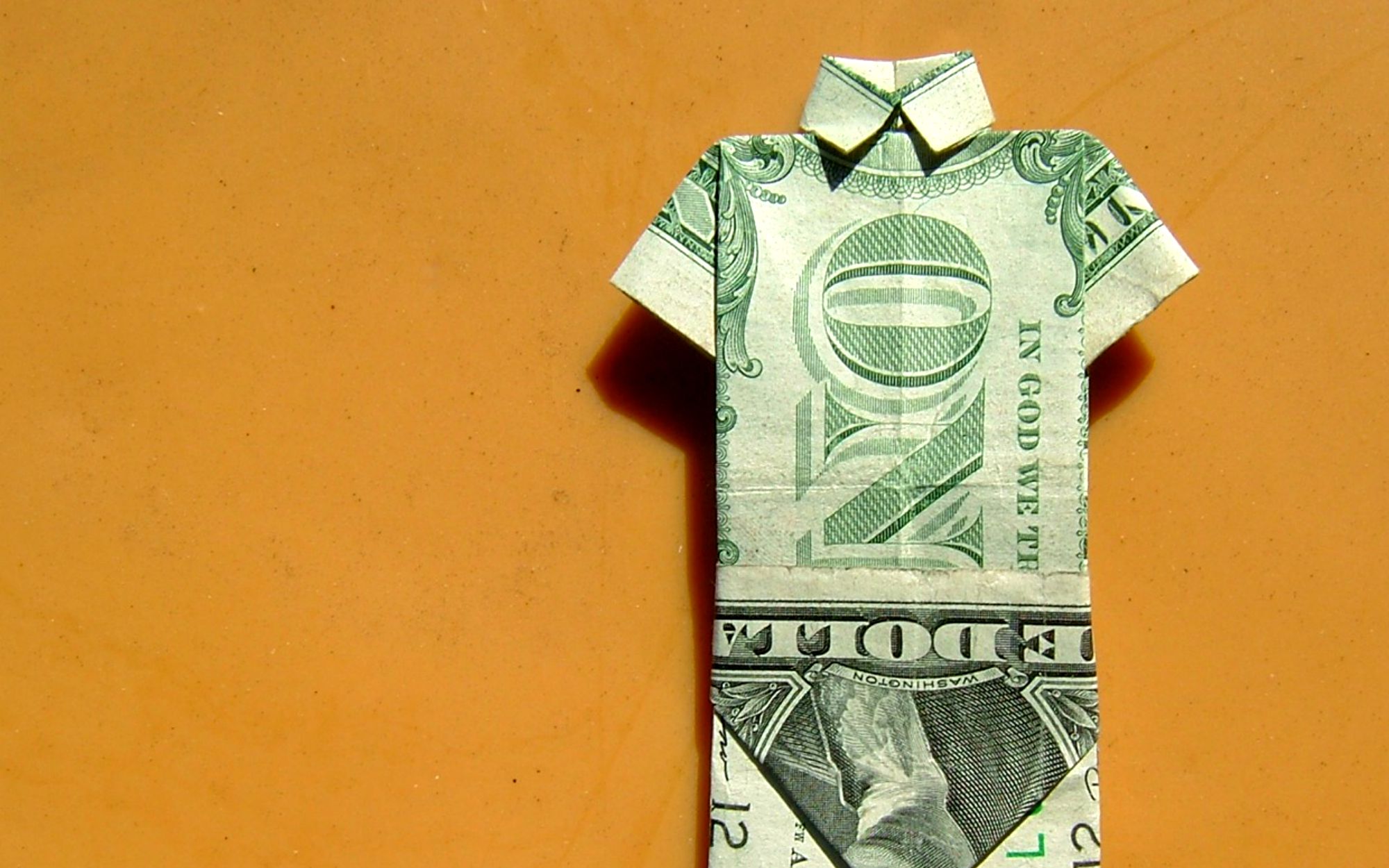What Do You Spend Money On? (That Your Parents Never Would)

Money and Mash-Ups are complicated. We want it! We’re the first generation to have it! Or we make way less than our hard-working immigrant parents and we feel bad about it! We earn it in totally different ways than our parents and grandparents! Money is one of the things we feel guilty about sometimes, and that we got weird advice from our parents on. Sometimes now we give our parents an allowance, but we’re not always sure that’s the right thing to do.
Our question:
What do you spend money on that your parents would *never* spend money on?
Here, we’ll start.
Amy, Korean-American
Shampoo, conditioner, and any other kinds of toiletries that one could “obtain” (steal?) for free from hotels. Also office supplies, like notepads and calendars and pens. Why buy a notebook when the bank will give you a freebie whenever you walk in the door? I grew up carrying First Chicago-branded everything to school. This is probably the 90s equivalent of the dozens of branded thumb drives I get whenever I go to a conference.
Rebecca, Salvadoran-Jewish-American
Booze. One of my grandfathers liked Johnny Walker, but aside from that basically everyone could give or take booze. My husband and I love drinking (and buying) good wine, and stocking our bar and making cocktails. When we go out to dinner with my parents, I get a little nervous about what wine to order (or whether to order at all) because I’m afraid of being judged! My mom’s starting to get into wine, though. Will report back.
Vince Tseng, Chinese-American
I still get my shampoo and conditioner from hotels.
Movie theater concessions.
Karen Miao, Taiwanese-American
Movie theater concessions. My mom was the queen of sneaking snacks and even drinks in her purse. On the rare occasion I was allowed to have soda, sometimes she let me have it at the movies. This wasn’t an individual can of soda she snuck in though. We only bought 2-liters, since it was more economical, and she would pour a serving into a Tupperware cup with a lid and then put it in a plastic bag in case it leaked (very precarious in my opinion).
At this point, I like buying movie theater popcorn, but insist on bringing my own water or sometimes hot tea. I realize the hot tea habit reveals that I am becoming a middle-aged Chinese woman. My Korean-American husband thoroughly disapproves of this practice!
Roben Farzad, Iranian-Jewish-American
I spend money on amazing Persian food — which is an outlay that would break Mom’s heart. Persian mothers spare no expense on ingredients, dry ice, packaging, UPS/FedEx to send their long-distance brood home cooking — no matter the hassle, no matter the stink. Mom rolled 500 family-recipe stuffed grape leaves for my wedding. They were snapped up in minutes. I’ll splurge at Persepolis and Ravagh in Manhattan, or Shamshiry in Northern Virginia. Now I’d love to open my own Persian restaurant. But to protect Mom’s pride, I’d only do it under my Swiss banking nom de guerre, RC Farsi.
Dan Goldman, Ashkenazi-Sephardic-Jewish-Canadian-in-America
Ordering any beverage other than ice water at a restaurant. I mean, why would you want or NEED anything other than ice water (tap) during your meal? A Coke? Are you kidding? Tea? The conversation usually goes something like this. “Is it included with dessert?” “No?” “No thank you — just some boiling hot water…with lemon. Please.”
These days, I confess, I still find it hard to bring myself to order a beverage, but I do it as to not seem cheap to my wife, who grew up with starkly different values. They were the kind of people that would even order appetizers! How frivolous!
Nishta Mehra, Indian-American
They came here and, classic immigrant narrative, worked their asses off and built a solidly upper-middle-class life that I was born into.
I’m actually in the weird position of having a lower household income than what I grew up with, with my parents. My mom grew up fairly affluent in India, but my dad grew up pretty poor. They came here and, classic immigrant narrative, worked their asses off and built a solidly upper-middle-class life that I was born into. My mom is pretty fiscally conservative and smart about money—she did all of the investing, etc., and made me listen to “Sound Money” on NPR on Sunday afternoons (which I hated, but am now grateful for), but she’s not at all stingy. My dad was even more generous with money. So we went on vacations, I got new clothes before school every year, my parents loved to entertain, etc. Both of my parents focused (and my mom, who is still alive, still does) on spending money on experiences more so than things.
So now, my partner and I are solidly middle-class, but we’re not upper middle-class in the way I grew up. I’m a teacher, so I chose a different kind of financial path, and it’s been a big adjustment for me to, say, shop at resale or thrift stores, or to learn to DIY things that my parents mostly hired people to do. I have learned to really enjoy being more self-sufficient and thrifty, though, to learn how to be super-competent in the kitchen and to still create nice experiences for our family, but sometimes in more creative ways because there’s less money to go around. My partner grew up pretty blue-collar, so we’re living above her childhood income level; I’m living below. Even though we are different ethnicities, religions, and 19 years apart in age, the class thing is probably the difference that has caused the most need for adjustments.
Cindy Bokser, Korean-American
Property taxes. It goes like this: As a first-gen kid from a financially secure home, i went the typical ‘Millennial’ route, rebelled, and built a career in the arts (i.e. not lucrative, not a doctor) in a culturally rich urban area, as opposed to the Midwestern suburbs in which I was raised.
My parents are appalled at the things I DON’T tend to spend money on, like designer bags, clothes, cars, status symbols. They find it really hard to understand that our two-family, income-generating home, with “cozy” urban living quarters, is roughly at the same market value as their McMansion in the Midwest. They look at me like I’m basically living in poverty. But the kicker is that we are paying more than 5 times what they are in property taxes.
Alexis Diao, Filipino-American
Family time. My parents came to America to pursue higher education, to offer a better life for their kids, and to afford a better life for us through work. Since all of the kids have left home, my parents have abandoned their insistence on Tang > OJ and Velveeta > Brie. But, the one thing they would never consider is buying time with their family and scaling back on their careers. They worked constantly, and still do.
When I became a parent, I left a full time paying job with great benefits and decided to take some time to ease into motherhood — to be just a parent, even for a few months. I didn’t love my job, but I loved my child, so it was an obvious decision to leave. But for my parents this was insane, worrying, apocalyptic even. Most people can’t afford to cut their household income in half, but we did. It was costly, but it was worth it.
Isadora Tang, Taiwanese-American
I think I inherited my love for strong coffee from my mother but I’m also pretty sure she would faint if she found out I regularly spend $5-6 on a cold brew, plus $1 tip for the barista if I’m feeling generous. In extra coffee-thirsty days this would be $12. In Singapore, where I’m living now, it’s even more expensive. Speaking of drinks — ordering ANY non-free drink at a restaurant still gives me anxiety.
My mom has individually wrapped pats of butter that she saves from the kabob place.
Tannaz Sassooni, Iranian-Jewish-American
The short answer is “everything.” My parents still use the free calendars they get from the World Wildlife Fund, and the free greeting cards printed with paintings by quadriplegics — oh and the return address labels!
But the one that comes up over and over, and actually seems to have an effect on our relationship, is food. Of course my mother wouldn’t understand paying 5 bucks for a stick of butter — but it’s Belgian! And tastes like god! And has little bits of sea salt that crunch under your teeth! — she has individually wrapped pats of butter that she saves when they take home leftovers from the kabob place. And wait, you’re telling me we have to pay 25 bucks for an entree at Little Dom’s, and then order a side separately? Ten dollars for juice? (Though honestly, they make a good point.) My mom does most of her grocery shopping at a Middle Eastern market in the deep valley she refers to as “the Arab.” The premiums I pay for produce at the farmer’s market would blow her mind.
Koca Wen, Taiwanese-American
In the reverse, my parents spent loads and loads of money on fortune tellers and fengshui experts that I don’t do now. But I spend too much money on “organic” stuff, especially for my toddler. And cigarettes and alcohol.
Layla Bermeo, Colombian-Mexican-American
Anything that could be considered a luxury good or service. Facials, haircuts at anyplace other than Fantastic Sams, designer accessories, organic produce. But while my parents may never understand how I earn money, they also never pass judgment on how I spend it. Sometimes the part about how much they sacrificed so that we could have a better life rings true, and I think about this while shopping for one-of-a-kind, hand-printed, eco-friendly Thank You cards.
Amy Chen, Taiwanese-American
Coffee. I grew up in a coffee-free household and now I’m pretty into coffee. I still love tea though, which is normal on my family and culture. I discovered I liked coffee in college. Now I’m a fan of coffee shop culture and latte art, and I am still figuring out my taste preferences. My parents don’t enjoy coffee or have a habit of drinking it. It definitely feels “American” and very “Western” for me to spend money on coffee when I am with them, or when I tell them I do.
Heat and air conditioning.
Cathy Elder, Korean-American
Books. Why buy books when you can get them at the library for free? Internet and wifi — what’s that?!?! Cable. Even though they spend countless hours adjusting the antenna and the channels are always still a little fuzzy, at least it’s free. Heat and air conditioning. Growing up, my brother and I would get a little space heater and/or have to wear layers upon layers of clothes in the winter. And in the summer, we would camp out in the basement, where it was cooler. My parents probably still wouldn’t use either heat or AC if it wasn’t for having a grandchild now.
Ruchir Shah, Indian-American
Fancy restaurants! Every time Sarah and I spend more than $150 for the two of us, my parents say, “We never spent that much when we were your age. Ever. You don’t need to do that.” I think I once told them that we spent more than $400 on one meal and they had a look of disgust on their face like they had just seen someone poop on the street.
What do you spend money on that your parents think is bananas? Share with us!
You looking for answers? We’re asking questions:
What Dating Advice Did You Get From Your Immigrant Parents?
Where Do You Feel Most At Home?





